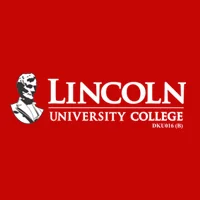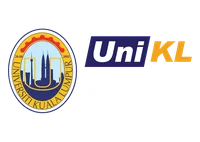
There are many reasons people choose to study Health and Medicine, with one of them being the burning passion to help others. In any case, joining this discipline requires long-term commitment and, therefore, such decision should be treated with great seriousness.
Nonetheless, don’t be intimidated by the challenges of studying medicine: This pathway can lead to a happy and fulfilling career if entered with the right understanding and mindset.
If you can’t decide whether or not this is the right course of study for you, you’ve come to the right place. This guide outlines everything you need to know about studying Health and Medicine:
-
What is Health and Medicine about
-
What are the pathways into Health and Medicine?
-
What skills are needed to study Health and Medicine?
-
How long is a Health and Medicine degree?
-
What are the entry requirements?
-
How much does a Health and Medicine degree cost?
-
What are the career options?
-
Universities offering Health and Medicine studies in Malaysia
-
Why study Health and Medicine in Malaysia?
What are Health and Medicine about?
The discipline of Health and Medicine encompasses the understanding, prevention and cure of diseases and disabilities as well as the investigation of physical and mental wellbeing.
Within this field, a vast number of academic paths can be found. Below are some of the more popular ones:
Clinical Sciences
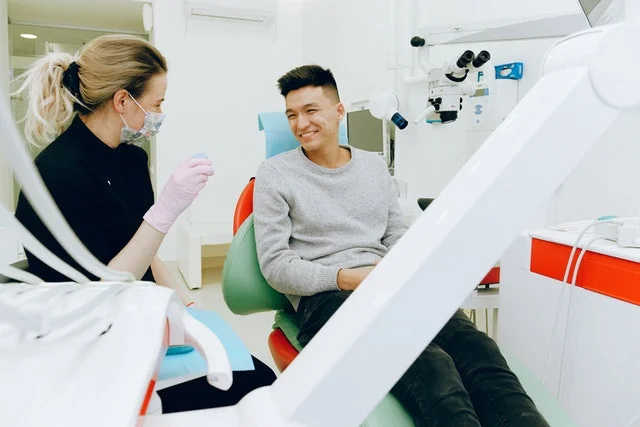
This field of study is concerned with medical research and the diagnosis of disease using laboratory procedures.
Clinicians are medical professionals that deal with patients, such as doctors, nurses and other medical specialists.
A few examples of clinical sciences studies include nursing, dentistry, clinical pathology, nutrition, and clinical pharmacology. Clinical psychology and veterinary science are also other branches of this field.
Therapy and Rehabilitation

Those who are passionate about helping patients recover from a physical injury or disability usually join therapeutic and rehabilitation professions.
The most common areas are physical therapy, occupational therapy and speech-language therapy.
A wide range of rehabilitative methods is studied for these purposes, including:
-
Music therapy
-
Dance therapy
-
Sports therapy
-
Neurological rehabilitation
-
Orthopedic rehabilitation
-
Occupational health and work rehabilitation
Medical Technology

This is a broad field is concerned with the development and application of medical devices and equipment.
Here, innovation plays an ever important role in improving health and contributing to sustainable healthcare.
The importance of this field can be seen in how it intersects with almost every other existing medical fields due to the widespread use of technologies in medical research and healthcare sectors.
What are the pathways into Health and Medicine?
Depending on the career path you choose, there are many ways to enter the field of Health and Medicine. Here, we look at education pathways for three of the most popular careers in this discipline:
-
Medical doctors
-
Nurses
-
Pharmacists
Becoming a Medical Doctor:
Overall, it usually takes around 8 years to be a fully registered doctor, and over 10 years to become a specialist.
Pre-University / Foundation studies (1-2 years) → Medicine degree (5 years) → Housemanship (2 years) → Qualified Medical Officer
After SPM, you can choose to study a Foundation in Science programme, which generally takes 1 year to complete, or any other equivalent pre-university qualifications such as A-Level, STPM and Matriculation.
Then you will be required to join the Bachelor in Medicine, Bachelor in Surgery (MBBS) course, which is a 5-year undergraduate degree programme in Medicine that has been approved by the Malaysian Medical Council.
At the end of the programme, you will need to pass the medical qualifying examination before completing a 2-year compulsory internship - also known as “housemanship” - in order to practice medicine as a fully qualified medical officer (MO).
After becoming a registered doctor, you may choose to go further into an area of specialisation, such as oncology, neurology, gynecology and orthopedics.
In order to be a registered specialist, it will typically take another 4 to 5 years of postgraduate study, followed by 2 to 4 years of supervised training as a specialist.
Becoming a Nurse:
There are two popular education pathways to become a nurse in Malaysia:
1. Pre-University / Foundation studies (1-2 years) → Degree in Nursing (4 years) → Registered Nurse
Upon completing SPM (or equivalent), you may choose to study a Foundation in Science programme or any other pre-university qualifications (e.g. A-Level, STPM, Matriculation, etc.) and proceed with a Degree in Nursing programme, which usually lasts 4 years.
Afterward, you will be qualified to register with the Nursing Board Malaysia and acquire the Annual Practicing Certificate. In total, it will take 5 to 6 years for you to practice as a registered nurse with this pathway.
2. Diploma in Nursing (3 years) → Registered Nurse
Alternatively, you can opt to complete a Diploma in Nursing programme after SPM. The course duration is generally 3 years long.
You will then be able to directly register with the Nursing Board Malaysia and acquire the Annual Practicing Certificate. This is the fastest way to become a qualified registered nurse.
Nonetheless, registered nurses with a diploma are also encouraged to pursue a Degree in Nursing to strengthen your skills and knowledge after obtaining 3 years of working experience.
In most cases, such students are allowed to complete their bachelor’s degree in 2 years.
Becoming a Pharmacist:
Pre-University / Foundation studies (1-2 years) → Pharmacy degree (4 years) → Pharmacist training (1 year) → Registered Pharmacist
The most common pathway into a career in Pharmacy is to start with a pre-university or Foundation in Science programme and proceed with a Degree in Pharmacy, which usually takes up to 4 years.
Then you will need to complete 1 year of training as a pharmacist, followed by 1 year of compulsory service under the supervision of the Pharmacy Board of Malaysia (PBM).
During the training period, you will also need to pass a PBM Qualifying Examination in order to be registered as a pharmacist in Malaysia. Overall, it will take approximately 6 years to become a registered pharmacist.
What skills are needed to study Health and Medicine?
While knowledge, training and a great deal of persistence are important for a Health and Medicine major, developing your soft skills can take you a long way as well. The following are three skills that may be crucial for this course of study:
Empathy
This skill allows you to understand someone else’s situation, perceptions and feelings from their point of view - and communicate this understanding back to them.
Empathy is not the same as sympathy, which stops at feeling pity or sorrow for another person’s suffering. Empathy gives you the ability to share their suffering and emotions.
Confidence
When we talk about confidence, it should not be confused with arrogance. Confidence does not assume to know it all; rather, it takes responsibility and is particularly important when working with patients, for it builds a sense of trust between the patient and the medical provider.
Teamwork skills
Learning to be a team player is a must, regardless of the path you choose to pursue as a Health and Medicine major.
Teams exist everywhere in this field, be it in healthcare services or research departments. As a health professional, you’ll need to participate and deliver your best with every task that comes your way.
How long is a Health and Medicine degree?
Depending on the institution and your level of study, the duration of study may vary. Generally speaking, the duration for each level of study is as follows:
-
Foundation: 1 year
-
Diploma: 3 years
-
Bachelor’s degree: 3 to 5 years
-
Master’s degree: 2 to 4 years
-
Doctorate: 3 to 6 years
What are the entry requirements?
Similarly, the academic entry requirements will also vary based on your choice of institution and level of study. Outlined below are the general academic entry requirements for each level of study:
1. Foundation
SPM / O-Level (or equivalent): 5Bs including Mathematics/Additional Mathematics, Chemistry, Physics and Biology with a pass in English
2. Diploma
SPM / O-Level (or equivalent): 5 credits including Bahasa Melayu, Mathematics and a Science subject with a pass in English
3. Bachelor’s degree
STPM / A-Level: BBB, ABC or AAC in Biology, Chemistry, Physics or Mathematics
UEC: B4 in Biology, Chemistry, Physics, Mathematics and Advanced Mathematics
Australian Matriculation: ATAR 80.0, including Biology, Chemistry, Physics or Mathematics
Foundation in Science: CGPA 3.0 in Biology, Chemistry, Physics or Mathematics
Matriculation: CGPA 3.0 in Biology, Chemistry, Physics or Mathematics
In addition, a minimum of 5Bs including Mathematics/Additional Mathematics, Chemistry, Physics and Biology in SPM / O-Level (or equivalent) is typically required.
4. Master's degree
Bachelor’s degree or equivalent in relevant field: CGPA 3.0
A certain amount of working experience may be required.
5. Doctorate
Master’s degree or equivalent in relevant field: CGPA 3.0
Bachelor’s degree (for direct Bachelor to PhD students): CGPA 3.70
A certain amount of working experience may also be required.
How much does a Health and Medicine degree cost?
Tuition fees for a Health and Medicine degree may vary according to your level of study and the type of institution. The following list is based on the fees structure of both private and public institutions in Malaysia:
-
Foundation: RM 9,000 to RM 28,000
-
Diploma: RM 23,000 to RM 40,000
-
Bachelor’s degree: RM 11,000 to RM 1,000,000
-
Master’s degree: RM 7,000 to RM 67,500
-
Doctorate: RM 12,000 to RM 125,000
What are the career options?
With the wide variety of study areas in the discipline of Health and Medicine, the career opportunities that come with them are endless. The list below is only the tip of the iceberg.
Clinical Science
- Nurse: RM 2,000
- Dietician: RM 2,900
- Doctor: RM 3,500
- Clinical Psychologist: RM 5,000
Therapy and Rehabilitation
- Occupational Therapist: RM 2,500
- Physical Therapist: RM 2,500
- Respiratory Therapist: RM 2,700
- Massage Therapist: RM 2,000
Medical Technology
- Medical Technologist: RM 2,800
- Pharmacy Technician: RM 2,900
- Clinical Laboratory Technician: RM 2,200
- Radiographer: RM 2,400
Universities offering Health and Medicine studies in Malaysia
Management and Science University (MSU)

At the Management and Science University (MSU), Medicine and the Health Sciences are among the University’s specialisations. MSU provides students with holistic education and industry relevant training in order to shape them into competent professionals.
International Medical University (IMU)
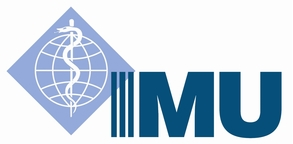
The International Medical University (IMU) is one of Malaysia’s top private specialist university in the field of Medical and Health Sciences. Having established partnerships with a number of health industries and leading hospitals in the country, IMU students are able to receive continuous exposure to research and real-life healthcare practice as part of their learning process.
University of Malaya (UM)

The University of Malaya (UM), Malaysia’s first public university has produced thousands of medical, pharmacy, biomedical and nursing graduates to serve the country and the world. It is among the top destinations in Malaysia to study Health and Medicine.
University of Science Malaysia (USM)
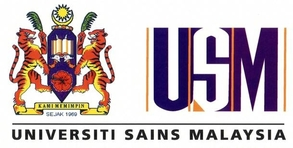
The University of Science Malaysia (USM) is the second oldest public university and among the leading ones in Malaysia.The university has the highest score in Malaysia for research papers published per faculty member.
Cyberjaya University College of Medical Sciences (CUCMS)

The Cyberjaya University College of Medical Sciences (CUCMS) is a private university specialising in healthcare education in Malaysia. Having strong partnerships with some of the leading pharmaceutical corporations and public research universities in Malaysia, CUCMS is committed to bringing its education and research standards to greater heights.
Why study Health and Medicine in Malaysia?
As more and more foreign universities conduct campuses in Malaysia, the country continues to flourish as an education hub for international education. On top of that, the Malaysian healthcare industry spending has been expected to grow to reach RM 80 billion by 2020, signaling that now is the best time to join the medical and healthcare profession.
Not convinced? Here are a few more reasons you should consider studying Health and Medicine in Malaysia:
Top Health and Medical Tourism destination
Did you know that Malaysia is among the destination for Health and Medical tourism in Asia? That’s right; Malaysia has been a popular destination for healthcare tourists since its recognition by the International Medical Travel Journal (IMTJ) in 2015.
Affordability
You can save a lot on tuition fees and living costs by studying locally. Home to some of the top-ranked universities worldwide, Malaysia can offer you a cost-effective, world class education.
Career opportunity
Despite the popular belief that Malaysia is over-saturated with medical professionals, the fact is that the country is severely lacking specialist doctors. There are only around 5,000 specialised medical practitioners serving the Health Ministry currently, and steps are being taken to increase this number.





 +60173309581
+60173309581







